Transport for London has long desired to take over more of the capital’s suburban rail network, but how will this fit in with central government’s rail policy? Tom Edwards reports.
In this article:
Transport for London has long desired to take over more of the capital’s suburban rail network, but how will this fit in with central government’s rail policy? Tom Edwards reports.
In this article:
- London Mayor Sadiq Khan hopes for expanded control over suburban rail networks, echoing TfL's success with Overground.
- New Transport Secretary Louise Haigh advocates expanding London-style bus powers across England while evaluating further rail devolution.
- Government's priority is establishing Great British Railways, though regional rail control remains under discussion.
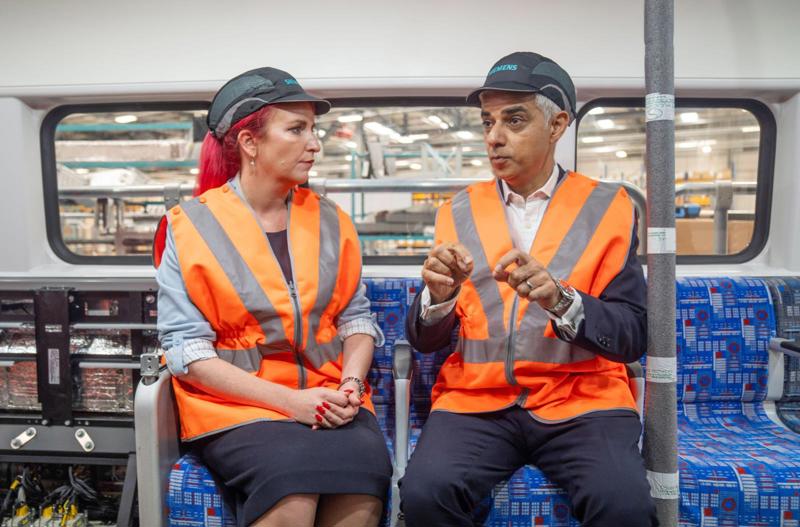
Talk about a fresh start.
It was the first official meeting after the General Election between new Transport Secretary Louise Haigh and the Mayor of London Sadiq Khan. And there, in front of London’s media, they hugged each other in the street.
If ever there was a sign that relations are perhaps going to be different, then that was surely it.
In that moment, the acrimony and vitriol between Central Government and the London Mayor was swept aside.
Previous to the new Labour administration, relations had been strained. Constant sniping and arguments over funding had soured the relationship.
The Transport Secretary introduced herself to the media: “Hi, I’m Louise.”
She was then accompanied on a bus with the Mayor, and given a tour of a south London bus garage.
The message was very simple: bus privatisation is going to be reset and controlled. The rest of the country is going to get a bus service like London’s - local communities will control the routes and the fares.
Haigh was clear: “We want to replicate the powers that London has enjoyed for decades, to the rest of the country.
“For too long we have allowed private operators to pick and choose whatever routes they want, and if they don’t want to run them then it leaves communities with no control or having to pick up the whole price.
“London has enjoyed the power to take control of its bus service for decades. We think every area of the country deserves that.”
But what will happen to rail? Will we see similar powers for regional Mayors? Could we see more rail devolution with franchises handed over to the local Mayors, as has happened in London?
There, the answers are not clear cut. And it is very early days.
There is a long history of London Mayors lobbying and taking over failing rail franchises.
Shortly after the election, at a meeting of the regional Mayors, Sadiq Khan told BBC London: “I’ll be lobbying, once those franchises end, for those commuter trains that come into London - for us to have them.
“Let’s wait until those franchises end. That’s some years away. What we are keen to do is when those franchises end, we lobby for those to come under London.
“We can’t have them without additional resources. What I wouldn’t do, as it’s letting down Londoners, is take additional lines without additional resources. Because they need some investment, they have been neglected for too long.”
It is difficult to think of a bigger turnaround success story than London Overground.
Transport for London took over the failing Silverlink franchise in 2007 and rebranded it as the Overground. Before the takeover it was a poor, dilapidated service with 33 million passengers a year. That figure has now increased to over 180 million a year.
Alex Williams is the Chief Customer and Strategy Officer at Transport for London (TfL), and has over 30 years’ experience in transport planning. He previously told RAIL that he believes devolution and a Mayoralty has helped to deliver better services.
Such are the sensitivities and uncertainties around rail devolution at the moment that no one from Transport for London felt this was the right time to talk on the record to RailReview for this article.
But speaking to RAIL earlier this year, Williams put the Overground’s success down to more control and investment, which actually increases passenger numbers: “It’s a stunning success story. It’s about accountability. If things go wrong on the London Overground, the Mayor is on the Commissioner’s case saying: ‘What are you doing to fix it?’
“I think there’s an accountability challenge, which in Whitehall is just not going to happen if you have the minister. You’re just not as close to it.”
But Williams crucially said that this does require investment: “But also, we have dealt with the fundamentals.
“One is reliability - we have quality rolling stock and better stations. Safety, staff, CCTV, and we have also cut down on fare evasion.
“The final thing is integration with the ticketing. Getting the fundamentals right is all part of why London Overground is a great success.”
Before the election, Williams told RAIL he believed more rail devolution would improve the service for passengers.
“We want the next government to do more of that. The railways are semi-nationalised anyway. You could have more of those franchises for inner-suburbans going over to Mayoral control, and we would over time deliver that kind of comprehensive package of improvements. It’s a hugely improved product.”
The Overground has continued to grow since its launch in 2007. There have been three extensions on extra lines - East London Line (2010), South London Line (2012), and West Anglia lines (2015).
According to Transport for London, the frequency of trains increased from 400 a day to nearly 1,700 a day by 2017.
Delays have reduced by more than a third, with Oyster and contactless payments now in place, giving customers the lowest fares. The Overground network is integrated with the rest of London transport in its branding and on the maps.
Six new stations have also opened up areas of London, such as Hoxton, Imperial Wharf and Dalston Junction. There have also been big investments in new trains.
Back in 2017, when the Overground celebrated ten years, TfL Director of London Rail and Sponsored Services Jonathan Fox made it clear that it was interested in expanding the Overground even further.
“Since forming London Overground in 2007, we have focused on improving the frequency and reliability of services for customers,” he said.
“We have now seen over a billion journeys on the network and record levels of customer satisfaction, making it one of the most popular railways in the country.
"Further improvements will include an extension to Barking Riverside and a new fleet of trains, providing improved capacity and reliability.
“We would love to bring the benefits of London Overground to more Londoners by taking on responsibility for other rail lines in London in future.”
An interesting point of difference between Transport for London and the Great British Railways model is the use of private companies. TfL uses the concession model and sets the timetables and fares, but uses private companies such as Arriva to operate the services.
In 2017, Will Rogers, managing director of Arriva Rail London, which operates the London Overground on behalf of TfL, said: “Since 2007, our teams in stations and on trains have worked tirelessly to transform the service for our customers and communities.
“They have played a fundamental role in making the London Overground one of the most popular and reliable railways in the UK.
“As we celebrate ten successful years, we look forward to delivering further improvements and working closer with the communities we serve.”
The model is different to the one that the government is planning on the trains.
It is setting up Great British Railways, which will in effect control the railways.
It wants to bring the franchises, when they come to an end, under a public sector company.
It will stop the involvement of private companies.
Some in the industry think that is a mistake.
Rail Partners Chief Executive Andy Bagnall, for example, says private companies can reduce public subsidy.
On the day the government set out the legislation to end the involvement of private companies, he said: “Train companies agree that change is needed, but it is disappointing to see government legislating to ban the use of contracted train companies, without first setting out the detail of how its wider rail reform bill will deliver improvements for passengers and freight customers.
“On a day when the government is revealing significant pressures on public finances, it is counter-intuitive to remove the only part of the system with a track record of driving growth and reducing subsidy for taxpayers, which can free up money for other public services and helps hold fares down for passengers.”
Shadow Transport Secretary Helen Whateley also says the new model won’t bring down fares: “Labour has also decided to nationalise all train operators irrespective of performance - a move that can only be based in ideology. Nationalising well-run operators won’t bring fares down or make services more reliable.”
Wera Hobhouse, the Liberal Democrat MP for Bath, also has reservations. She told Parliament: “It is not clear how Labour’s plans for nationalisation will do anything to alleviate the high cost of travelling by rail.
“We urge the new government to freeze rail fares and simplify ticketing to ensure that regular users are paying a fair and affordable price. For too long, decisions over local transport have been centralised.”
Passenger campaign groups are less concerned about the structure. But they do point out one of the architects of rail devolution at Transport for London, Lord Peter Hendy, is now in government as Rail Minister.
Michael Solomon Williams, from Campaign for Better Transport, tells RailReview: “The outstanding success of London Overground and Merseyrail shows why devolution of suburban rail should be a priority.
“Passengers care less about who runs their service and more about complicated tickets, changing networks, and cost differences - all issues that can be addressed by placing suburban rail under local control.
“The exciting appointment of Peter Hendy as Rail Minister, with his background in Network Rail and Transport for London, puts the possibility of more suburban rail devolution in a good position.”
So, is rail devolution possible?
It certainly seems that it is a more complicated beast than the buses. Louise Haigh was broadly supportive when we spoke to her, albeit at the moment the priority seems to be elsewhere.
“The plan is to establish Great British Railways and to establish that nationally - a publicly owned network. That’s the absolute priority, and it’s complicated to get it right.
“But we will. And we have that commitment to give Mayors far more of a role in Great British Railways, both in the running and the timetabling of their network, so we will absolutely be having those conversations and look forward to doing so as we progress Great British Railways.”
Has GBR usurped rail devolution? Or can both happen at the same time?
It seems that the Mayors will have an input, but will that extend to actually taking over the running of the lines, as happened with the Overground?
Certainly, the focus for London Mayor Sadiq Khan seems to be a long-term funding deal.
When asked about taking over more rail franchises, Khan emphasised funding: “The key thing we want from the government is a new way of working - rather than putting obstacles in our way, working with us to solve London’s problems which benefits the country.
“It’s the government accepting, for example, that TfL investments support hundreds of thousands of jobs around the country. We need a skilled labour around the country… they need TfL investment.
“We contribute almost £6 billion to the UK’s economy. In the past, the government didn’t recognise London’s importance to our capital, but also the rest of the country. This government certainly does.
“My big ask from them is a long-term financial deal. We can’t live hand to mouth every six months, nine months, going with a begging bowl to the government asking for a deal.
“It means we don’t get value for money with the contracts, and I’m hoping we can get the long-term deal. That’s the real prize for me.”
Of course, there is something of a honeymoon period in relations between the Mayor and government at the moment.
Sooner or later, Transport for London will ask for funding and the Department for Transport will say no. Funding priorities will be elsewhere in the country. Relations may be good at the moment, but how long will that last?
And where is rail devolution? Could the London Mayor take over more lines?
It would seem odd to have some suburban lines run by Transport for London and others by Great British Railways, particularly when the Overground has (by most metrics) been a big success.
Rail devolution is certainly a possibility over the coming years, but it doesn’t feel like a priority for government at the moment. The focus seems to be on restructuring of the rail franchises and the creation of Great British Railways, with some input locally.
But it’s early days…
Login to continue reading
Or register with RAIL to keep up-to-date with the latest news, insight and opinion.



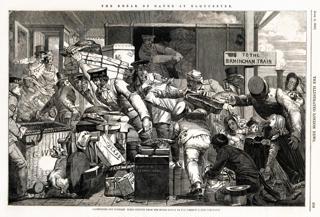
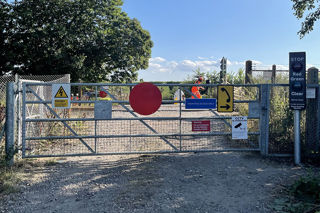
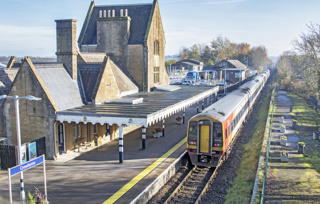
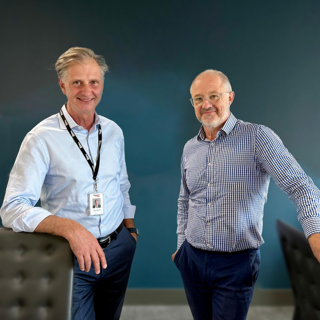











Login to comment
Comments
No comments have been made yet.